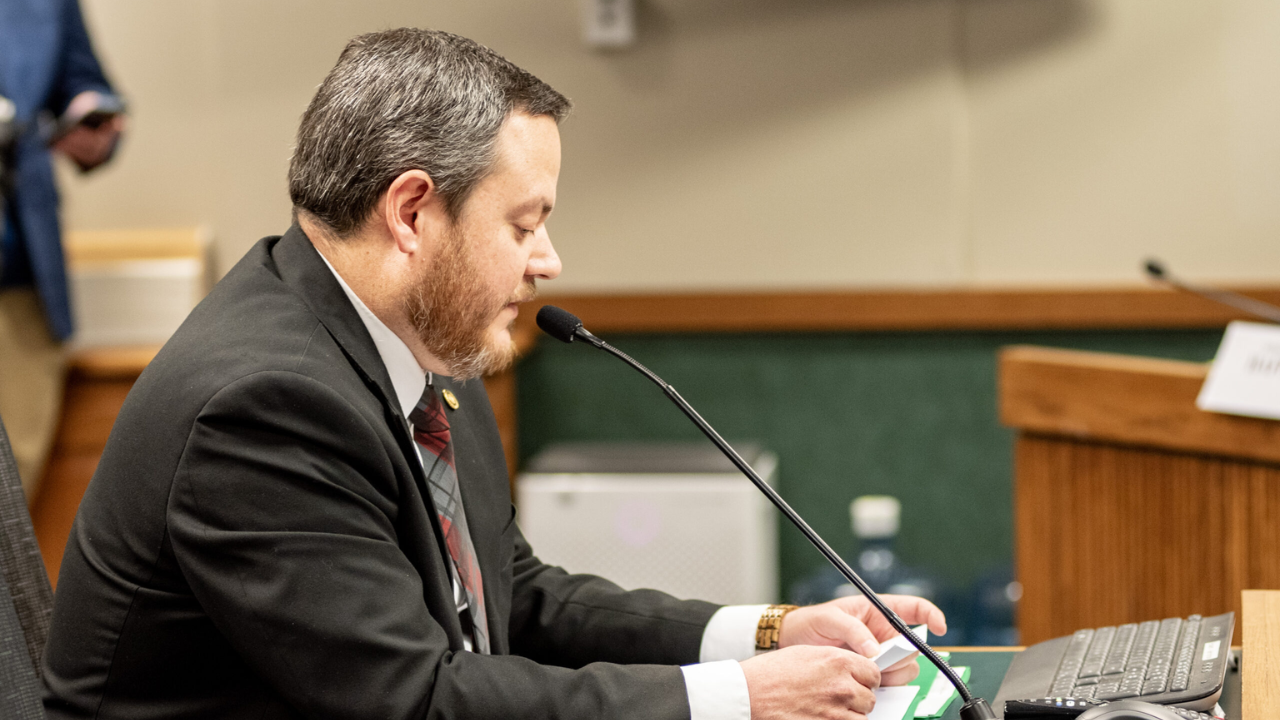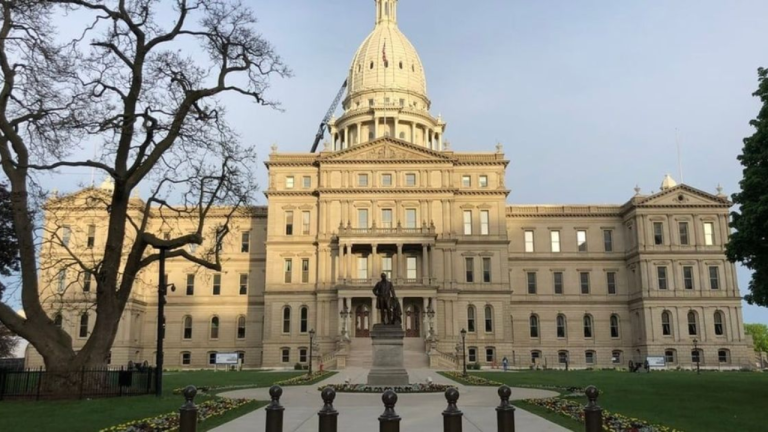Race Day Live The Missouri House held a long hearing on Monday, discussing several bills that aim to make restrictions on transgender youth and athletes permanent.
Lawmakers debated for over seven hours, hearing opinions from both sides on whether these limits should stay in place.
Four of these bills would remove the expiration date on a ban that stops transgender minors from receiving gender-affirming healthcare, such as puberty blockers and hormone treatments.
The other three bills would extend the ban that prevents transgender athletes from playing on teams that match their gender identity, including at the college level.
Rep. Ben Baker, R-Neosho, supports removing the expiration date on the healthcare ban. He said that people in his district want this law to stay. “This is something my constituents have been asking for,” Baker said.
However, Democrats opposed the bills. Rep. Emily Weber, D-Kansas City, criticized lawmakers who called these changes “simple,” saying it ignores the large number of people who showed up to protest the legislation.
Missouri first passed the law in 2023, making it illegal for transgender youth to receive gender-affirming care.
It also banned transgender athletes from playing on sports teams that align with their gender identity in public, charter, and private schools.
However, to get the law through the Senate, a sunset clause was added, meaning it will expire on August 28, 2027. This clause does not apply to gender-affirming surgeries, which remain permanently banned for minors.
The original law also included a grandfather clause, allowing transgender minors who had already started puberty blockers or hormone therapy to continue their treatment.
Senate Democrats had fought for this to protect those already receiving care. However, the new bills would remove this exception.
During the hearing, supporters of the permanent ban defended the legislation. Dr. Josephine Glaser, a family medicine doctor, said that keeping the law would “promote human flourishing” and that Missouri made the right choice when the original bill was passed.
Gender-affirming care includes medical treatments, mental health support, and social acceptance. It is supported by major medical organizations, including the American Academy of Pediatrics and the American Medical Association. Doctors say that it is rare for minors to undergo surgery before turning 18.
Dr. Ken Haller, a retired pediatrician from St. Louis, opposed making the restrictions permanent. He argued that science continues to evolve, and gender-affirming care is not experimental. “There’s nothing in medicine that is proven science. Science is always evolving,” Haller said.
More than 50 people spoke against the bills, compared to only six who supported them. Many who opposed the legislation were transgender individuals.
Seventeen-year-old Charlie Saunders said that the original law has denied him the care he needs. “I cannot get the hormones that would make me feel like myself,” he said.
“I cannot get rid of this voice that sounds like someone else is talking through my vocal cords.”
Parents of transgender children also spoke against the proposed changes. Sasha Justice, whose transgender daughter was receiving care at the Washington University Transgender Center in St. Louis, shared how the law affected her family.
When the center stopped offering some treatments due to the law, Justice had to tell her daughter that she could no longer receive care.
Read More:
Trump’s Immigration Policies May Reshape North Carolina’s Skilled Workforce!
“I wish you could feel what it was like to tell her that you didn’t want her to live,” she said.
After five hours of discussion on the healthcare restrictions, lawmakers moved on to the bills about transgender athletes.
Supporters of these bills, such as Rep. Brian Seitz, R-Branson, said the restrictions are necessary to “save the future of women’s sports.”
However, the Missouri State High School Activities Association already has policies regarding transgender athletes, and the NCAA has its guidelines for college sports.
House Minority Leader Ashley Aune, D-Kansas City, said the legislature has not had enough time to study whether the current law is effective.
She reminded lawmakers that the sunset clause was part of a compromise between Senate Republicans and Democrats.
“All we have in this building is our word,” Aune said. “If people cannot trust us, why bother doing any of this?”
The debate over these bills will continue as lawmakers decide whether to make the transgender restrictions permanent.
Disclaimer- Our team has thoroughly fact-checked this article to ensure its accuracy and maintain its credibility. We are committed to providing honest and reliable content for our readers.


























+ There are no comments
Add yours